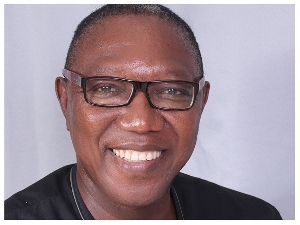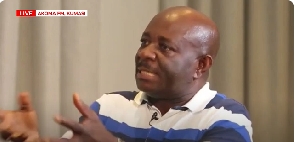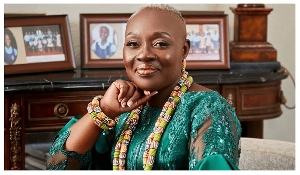Some events that transpired this week may potentially shape the political landscape of our motherland Ghana, and I would like to use this platform to contribute my thoughts on them. Before moving on to the main issue of interest, I would like to acknowledge all those following my writings and getting in touch. You all deserve a special mention, particularly Madam Esther Quaye of BoG on your imminent retirement on 2nd October, 2011.
What we witnessed on Wednesday, 21st September, 2011 at the University of Ghana during ex-president Kufuor’s foundation launch is indeed a laudable achievement. This piece assumes prior knowledge of that event and affords me the opportunity to give my personal opinion while drawing on possible repercussions for a wider spectrum of events.
Thomas Merton sets us off with a rather grave thought. He observes that: “Peace demands the most heroic labour and the most difficult sacrifice. It demands greater heroism than war. It demands greater fidelity to the truth and a much more perfect purity of conscience.” If anything is worth noting, it is that Merton reminds us that peace is never served on a silver platter considering the values enounced and attributes expected.
With some stories seeking to dampen the euphoria earlier generated by this ceremony of such poignant interest, I shall seek to concentrate my efforts on what was witnessed by all and sundry and astutely steer clear of any conjecture. My cardinal motivation remains that a seed has been sown and we have the choice to either dig it out or nurture it for growth and our own future benefit.
Well, so what is all the beef about, some may ask? Consider this statement from ex-President Kufuor: “…I am happy to see you, my predecessor in office, former president Jerry John Rawlings.” Was that uttered by Mr. Kufuor? Sure it was...This leads to my real thoughts for this piece: Swords and Saints.
A popular use of the word sword is to describe a weapon of various forms but consisting typically of a long, straight or slightly curved blade, sharp-edged on one or both sides, with one end pointed and the other fixed in a hilt or handle. Swords have also been used to represent military power, punitive justice, and authority. Furthermore, the sword embraces a cause of death or destruction. My focus here, though, remains the latter and also a less familiar representation of the word sword which defines it as symbolising war, combat, slaughter or violence. For the purpose of clarity, this article embodies the idea of sword as depicting death or a destruction agent.
In this modern age where modernity appears to be overshadowing barbarism to a point, no weapon does more damage than the mouth. Frankly, some mouths have gained the reputation of causing untold distress. Have you realised that truly some have mouths like swords?
In contrast, the word saint refers to any of certain persons of exceptional holiness of life, formally recognized as such by the Christian Church, especially by canonization. It may also be used to depict a person of great holiness, virtue, or benevolence. Furthermore, it can be used to represent a founder, sponsor, or patron, as of a movement or organization. This article embraces the notion of a saint depicting a person of virtue (a good or admirable quality or property).
Rawlings and Kufuor have been at swords' points for a while. This is firmly documented in the minds of many. It is not far-fetched to find evidence of them being fierce critics of each other. Without resorting to leaked evidence for corroboration of these two political giants crossing swords all this while, it remains no news to the ordinary man on the street that these two are not bosom buddies.
What is of striking significance though is that, Mr. Kufuor exercised wisdom by inviting Mr. Rawlings to his ‘private’ ceremony. Surprisingly, Mr. Rawlings honoured the invitation. This draws on King Solomon’s sagacity when he says: “A man's wisdom gives him patience; it is to his glory to overlook an offense”, [Proverbs 19:11 NIV].
Judging from the reaction of many to this story, it is understandable to believe that many did not expect to see those two sharing the same stage, and even more significantly, for the launch of Kufuor’s foundation. The story would have been different if this was a national ceremony. What a sight to see two fierce opponents joining hands together for a worthwhile project. They have demonstrated that they really have hearts of saints. However, do we expect to see them playing golf at Achimota soon? Probably not! Do we expect them to continue to exhibit mutual respect for each other, absolutely yes!
There are critics who may construe Wednesday’s action as a form of deception to mask deep-rooted issues. Dare I say that these critics were not taken in by such a laudable event? Such naysayers would argue that this was only to garner more or much needed political capital to remain relevant having found one’s feet on shifting sands. However, I am inclined to believe that the vast majority of Ghanaians would perceive events in a different light. They are more likely to see this event as a budding sign of political maturity and hence maintain a cautious optimism that this is not a nine days’ wonder.
Nevertheless, there remains a valid debate about whether we should dwell on the past or simply move on. One school of thought prefers to dwell on the past and argues about the rights and wrongs of yesterday’s actions. Martin Luther King, Jr. provides a powerful thought on which their argument may be deemed plausible. He argues that: “The past is prophetic in that it asserts loudly that wars are poor chisels for carving out peaceful tomorrows.” Such may also make reference to the ancient Roman religion and mythological god Janus who has two heads facing opposite directions. To this school, there is the need to look back before moving forward.
In sharp contrast though, others may argue very differently, believing that, “the distinction between the past, present and future is only a stubbornly persistent illusion”, as suggested by Albert Einstein. They believe that one cannot effectively run a race whilst always looking backwards and would therefore subscribe to the view that this event is the dawn of a new day in history.
Whichever view we adopt, as Oscar Wilde observed: “Every saint has a past and every sinner has a future.” We can decide to dig out the issues of yesterday or accept the events of today as a signpost to future occurrences. Everybody has a choice to make and we need to exercise caution if we are to learn from Maya Angelou who notes that: “Prejudice is a burden that confuses the past, threatens the future and renders the present inaccessible.”
Today, political parties continue to cross swords, albeit verbally. Unfortunately, we observe that there are some that unabashedly ply the trade of insults, casting aspersions on rivals and lacing their speech with billingsgate. They may have a lot to learn from the new found Kufuor-Rawlings ‘fraternity’. Such people detract attention from discussing the real issues of value that would advance our cause as a nation.
Aside from political parties, some tribes in the country continue to cross swords. The animosity and hatred displayed by some tribes towards others is reprehensible and utterly execrable at worst. The question to ask is whether we are all not Ghanaians. Indeed, tribalism has adversely affected the progress of many a nation leaving the ashes of regret as its invisible remnant and backwardness as its palpable bequest.
On a personal level, how many times have we used our mouths to our own destruction and caused the death of bonds of friendship? Yesterday, we may have crossed swords, and although Oscar Wilde may be right in arguing that: “No man is rich enough to buy back his past”, I take the view that today, we have an opportunity to exhibit the signs of sainthood. We may come from different backgrounds with different professions, young or old, rich or poor, literate or illiterate, strong or frail, believing or unbelieving, partisan or non-partisan, southerner or northerner, yet we are one people; Ghanaians!!!
What a great example the two ex-presidents have shown for all to emulate. Let us set an example for Africa at large and show the world that we are enlightened by shedding off that old image of political barbarism and ethnocentrism and embracing the virtues of sainthood.
Probably by the actions of our two former leaders, we should consider extending the Founders’ Day to Founders’ and Presidents’ Day, where we celebrate not just our founders but all past leaders and presidents, dead or living, who have contributed to the development of the nation in one way or the other. Although I revere the dead very much, I also subscribe to the view that my lot today, is mostly influenced by the living.
I shall conclude this piece by referring to some lines in the last paragraph of Abraham Lincoln’s 1st Inaugural Address (March 4, 1861) which was partly quoted by President Obama (during his election victory speech in 2008). This should hopefully offer some words of wisdom. It reads: “We are not enemies, but friends. We must not be enemies. Though passion may have strained, it must not break our bonds of affection.”
I shall return with: IN GHANA I TRUST.
God bless our homeland Ghana...Let the black star shine out to the whole world.
Dr. Frank Robert Silverson
Email: frsilverson@yahoo.com
Blog: www.franksilverson.blogspot.com












